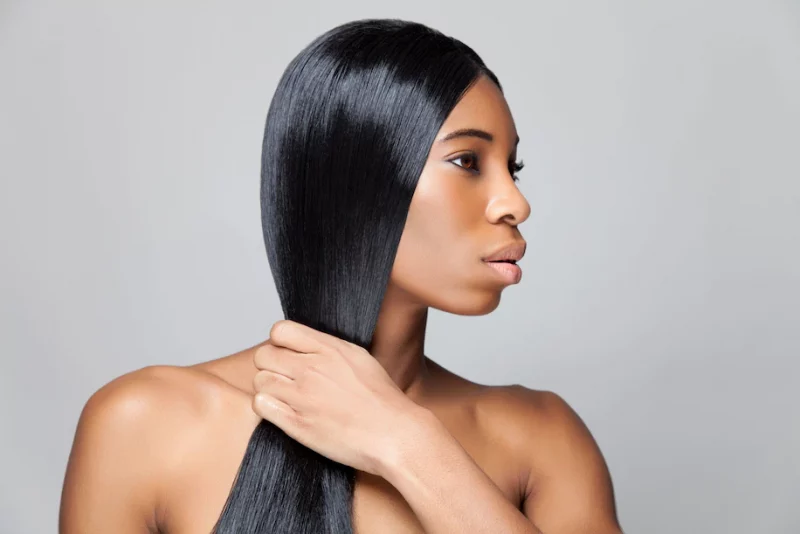Chemical hair straighteners linked to higher risk of uterine cancer for Black women, study shows
Share
Explore Our Galleries
Breaking News!
Today's news and culture by Black and other reporters in the Black and mainstream media.
Ways to Support ABHM?
By Char Adams, NBC News
“If you care about Black women’s health, you have to care about our hair,” said professor Wendy Greene, a leading voice in the movement against Black hair discrimination.

Women using chemical hair-straightening products are at a higher risk of uterine cancer than women who reported not using them, a new study by the National Institutes of Health found. Researchers noted that Black women may have a higher risk because they are more likely to use such products more frequently.
A group of researchers with the NIH’s National Institute of Environmental Health Sciences looked at the hair care habits of more than 33,000 women and found that those who used chemical hair straightening products at least four times a year were more than twice as likely to develop uterine cancer.
Researchers said chemicals like parabens, phthalates and fragrances in hair care products disrupt the endocrine system, which helps regulate hormones. That could, in turn, raise the risk of uterine cancer, the most common cancer of the female reproductive system.
[…]
The study’s lead author, Alexandra White, the head of the agency’s Environment and Cancer Epidemiology group, said: “We see a doubling of risk for frequent users, and that’s a very alarming figure. For non-users, the absolute risk is about 1.64%, and then when you look at frequent users, the risk goes up to 4.05%. It’s a notable increase in risk.”
Our breaking news section covers more Black health topics.









Comments Are Welcome
Note: We moderate submissions in order to create a space for meaningful dialogue, a space where museum visitors – adults and youth –– can exchange informed, thoughtful, and relevant comments that add value to our exhibits.
Racial slurs, personal attacks, obscenity, profanity, and SHOUTING do not meet the above standard. Such comments are posted in the exhibit Hateful Speech. Commercial promotions, impersonations, and incoherent comments likewise fail to meet our goals, so will not be posted. Submissions longer than 120 words will be shortened.
See our full Comments Policy here.